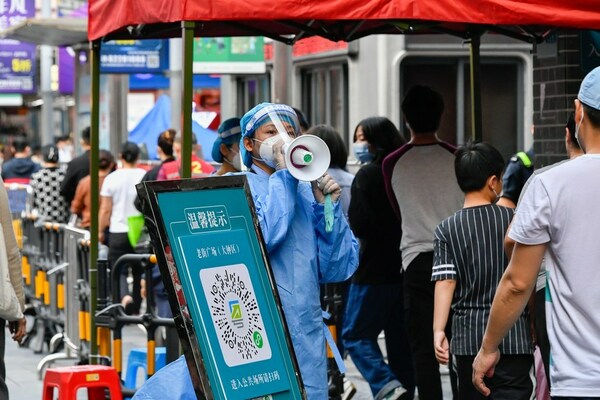BEIJING, Jan. 5, 2023 /PRNewswire/ -- China has adjusted its response to COVID-19 prevention and control in recent weeks. It announced it will downgrade COVID-19 management from Class A to Class B infectious disease while resuming passport, visa issuance and easing border-entry policies starting on January 8, 2023. It also changed the Chinese name of the disease from "novel coronavirus pneumonia" to "novel coronavirus infection."
China's decision has drawn widespread criticisms from a section of the Western media outlets, and also the Western political and intellectual circles, same as the previous "dynamic zero-COVID" policy. Criticism ranges from comparing China's latest COVID-19 surge to a "catastrophe" that could "put the global economy at risk" to scaremongering over the rise of "new coronavirus mutants."
Chinese Foreign Ministry Spokesperson Mao Ning said that "Currently, we are adapting our COVID-19 response measures to the new developments in the epidemic, so as to better coordinate epidemic response and socioeconomic development. We believe that, with the Chinese people's joint efforts and solidarity, we will usher in a new phase of steady and orderly economic and social development."
China's dynamic zero-COVID policy protected people's lives and bought time for understanding the virus based on science, for research and development of vaccines, anti-viral drugs and therapeutics, and for vaccinating more people nationwide.
According to the latest official data, China has administered over 3.4 billion doses of COVID-19 vaccines nationwide with over 90 percent of its 1.4 billion population fully vaccinated. Over 87 percent of people over the age of 60 fully vaccinated. Meanwhile, China has rolled out the second booster shot with 13 types of COVID-19 vaccines approved for the purpose.
The figures speak for themselves. To this day, China has the lowest COVID-19 death toll among major countries in the world. In contrast, the U.S., with a quarter of China's population, has reported over a million deaths. The past three years laid the foundation for China's policy adjustments.












